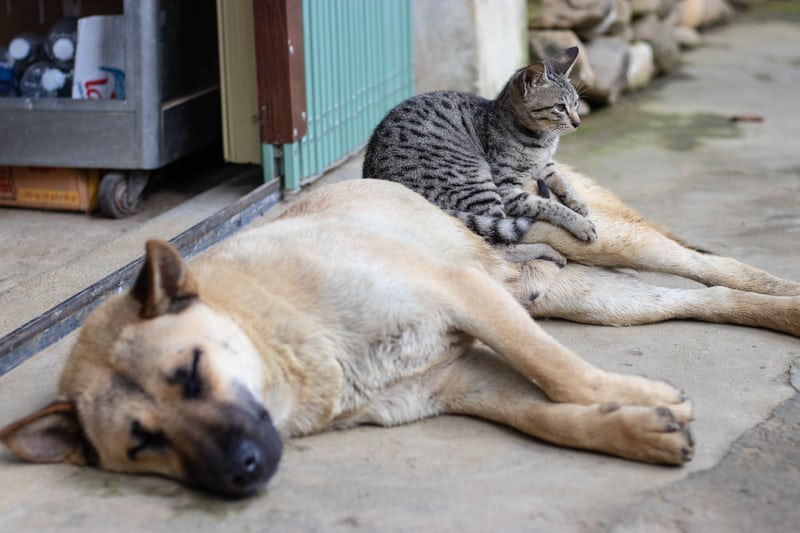Kidney disease seems to get more and more common in our cats and dogs. This is likely because we take better care of them throughout their entire lives and they live longer lives than ever.
While kidney disease can have specific causes, most often we never know what causes chronic kidney disease. Our goal is to ease the workload on the kidneys, control other problems that can arise and will affect kidney disease, and maintain the quality of life for as long as possible.
The best way to fight kidney disease is to find it early through regularly scheduled blood work with a urinalysis. We have a new, very sensitive blood test that can identify changes in kidney function much earlier than ever before. If we catch it early, we can start helping the kidneys maintain their function earlier in the disease process. This is one of the many reasons we recommend blood work for otherwise healthy pets younger than the age of 7 every year, and for senior pets or younger pets with known health issues, blood work every 6 months.
We won’t start seeing changes in how much a cat or dog drinks or pees at home until at least 2/3 of total kidney function has been lost. In the clinic, we will see this as a lower urine concentration, also called a urine specific gravity.
Next, we start seeing the traditional blood kidney values start to climb. This happens after at least 75% of kidney function has been lost. We want to catch kidney disease before this point.
Once we find kidney disease, it’s important to identify animals with high blood pressure. It’s also important to continue to watch for developing high blood pressure in animals with kidney disease by checking their blood pressure at least once a year.
We also need to watch for specific changes in their urine, including signs of infection and signs of excessive protein. Both of these will contribute to kidney disease progressing faster than it could otherwise.
Once we find a cat or a dog has kidney disease, we focus on:
- Making sure there is always abundant water available. Never, ever restrict access to water for a cat or dog with kidney disease. They will urinate more because they have to, and no amount of water restriction will make them urinate less.
- Feeding them a good quality, kidney-specific diet. Calories are critical, as weight loss is one of the most serious side effects of advancing kidney disease. Also, kidney diets help us decrease the waste products that the kidneys would have to take care of and help support healthy calcium, phosphorus, and potassium levels.
- Controlling loss of appetite with appropriate nausea medications as needed, if needed
- Treating other conditions that could make kidney disease worse, should they arise
Most dogs and cats will not die of kidney disease. They can have it for years and do well for years, if we take good care of them.
As always, our goal is to keep them healthy, happy, and active. Please contact us if you should have any questions.

